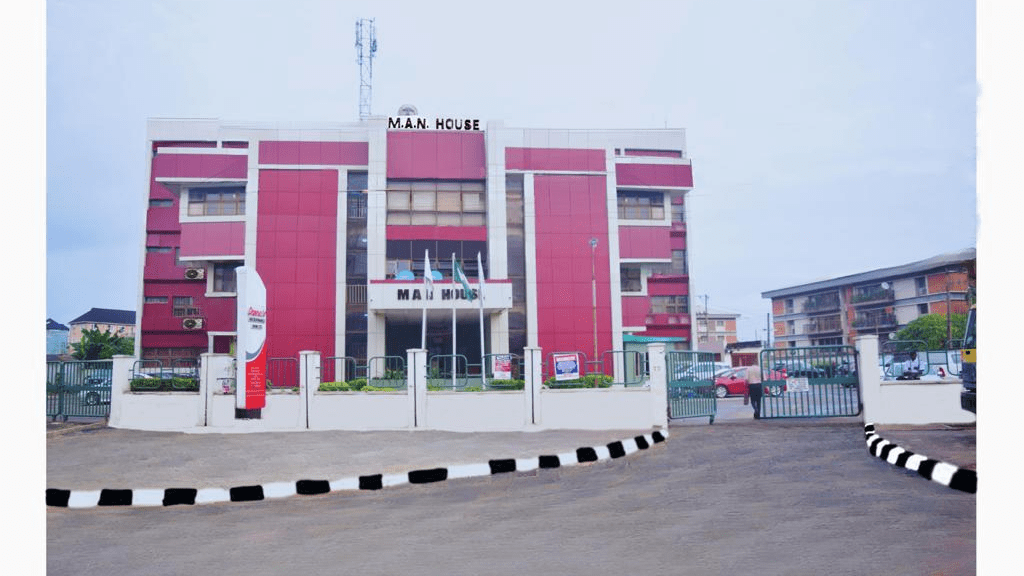
• Demands review of revenue formula
•Says FG too broke to meet obligations as states ‘feed fat’ on national allocations
Sunday Aborisade in Abuja
Former Special Adviser to ex-President Muhammadu Buhari on National Assembly Matters (Senate), Senator Ita Enang, has warned the federal government and its officials to exercise restraint in reacting to the reported designation of Nigeria by the United States as a “Country of Particular Concern.”
Enang, who also served as Chairman of the Senate Committee on Rules and Business in the 8th National Assembly, said the issue carries grave diplomatic implications and must be handled with a single, coordinated national voice rather than scattered individual opinions.
Speaking in an interview with journalists in Abuja on Wednesday, Enang said, “This is a diplomatic matter that must be treated with utmost caution.”
He said, “I want Nigeria and Nigerians, particularly officers of government, to be guarded in their response. Not every government official should make statements capable of inflaming the situation or misrepresenting the country’s position.”
He advised that the Presidency, the Ministry of Foreign Affairs, the National Intelligence Agency, and the leadership of both chambers of the National Assembly should come together to craft a harmonised national response to the development.
“What we have seen is that many in sensitive positions make comments which they believe are personal opinions. But given their offices, those remarks are perceived internationally as Nigeria’s official stance, which is wrong,” Enang stated.
According to him, the Senate and the House of Representatives should hold joint leadership sessions to agree on a unified legislative position, exchange drafts, and pass identical resolutions to ensure that the voice of Nigeria is coordinated.
He said the National Intelligence Agency (NIA) and the Ministry of Foreign Affairs should lead the interface on the matter, warning that “this is not an issue to be debated on social media or in random interviews.”
On domestic policy, Enang raised the alarm over what he described as the fiscal suffocation of the federal government, arguing that Nigeria’s current revenue allocation formula is obsolete and unfair to the central government.
He said while the states and local governments now enjoy increased allocations from the federation account, the federal government, which bears the heaviest constitutional responsibilities including security, foreign affairs, and national infrastructure, is left struggling to survive.
He said, “The truth is that the federal government is broke. It cannot meet its constitutional obligations because its share of the national revenue is too small relative to its responsibilities.
“Meanwhile, state governments are celebrating improved allocations and claiming they are not borrowing. But the federal government that makes these funds available is borrowing just to feed its children.”
Enang, a lawyer and fiscal policy expert, said the imbalance was forcing Abuja into a cycle of endless borrowing, warning the country would not escape the debt trap unless the revenue allocation formula was urgently reviewed.
He said, “The last review was done decades ago. Since then, the responsibilities of the federal government have multiplied a thousand times.
“Today, the federal government funds dozens of universities, polytechnics, security agencies, and commissions that didn’t exist when the current formula was made.
“You also have the National Assembly, the judiciary, and several agencies on first-line charge. Yet, the centre still receives just about half of national revenue.”
Enang argued that the same federal government that funds the army, police, DSS, civil defence, road safety, and several other security and regulatory agencies “is now borrowing to perform basic duties.”
He added that the situation “makes no fiscal or moral sense.”
He also accused the Budget Office and Ministry of Finance of poor fiscal discipline.
He said it was inappropriate to use projected revenues for 2025 to fund deficits from the 2024 budget.
“When a budget year ends, the books should close. Any uncompleted project should be rolled over into the next year and funded as such. Mixing fiscal years distorts accountability and transparency,” he added.
Enang, however, defended the federal government’s right to borrow within legal limits, noting that borrowing per se is not the problem, but what we borrow for.
He insisted that loans should be directed toward productive infrastructure capable of generating returns, not for recurrent spending or consumption.
He also dismissed claims that the National Assembly had abandoned its oversight functions, explaining that true oversight is a structured process that begins with verifying releases, inspecting projects, and submitting reports to plenary.
“As Chairman of Rules and Business, I used to insist that every committee present its oversight report, whether ready or not. That’s how we enforced accountability,” he recalled.
Commenting on fears that Nigeria is slipping into a one-party state under the ruling All Progressives Congress (APC), Enang said opposition parties were to blame for their own decline.
He said, “Nigeria is not becoming a one-party state by the design of the APC. The opposition parties simply failed to build enduring structures. Most of them are owned by individuals who revive them around elections and abandon them afterward.”
He, however, warned lawmakers against illegal defections, insisting that no member of the National Assembly or State Assembly has the legal right to leave their party unless a court declares that the party is divided.
The former presidential aide urged the Tinubu administration to “speak with one voice abroad and act with fiscal discipline at home.”
He said, “Nigeria’s image and economy are both fragile. We must manage our diplomacy with restraint and our finances with honesty. The federal government cannot continue to pretend everything is fine while it’s struggling to pay its bills.”



